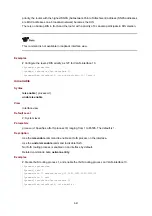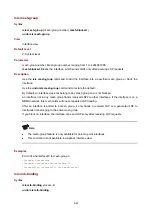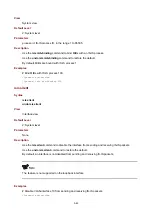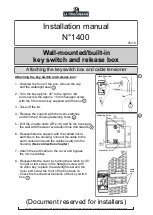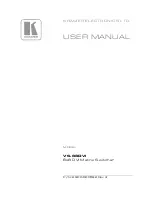
5-28
Related commands:
filter-policy import
.
Examples
# Reference ACL 2000 to filter redistributed routes.
<Sysname> system-view
[Sysname] acl number 2000
[Sysname-acl-basic-2000] rule deny source 192.168.10.0 0.0.0.255
[Sysname-acl-basic-2000] quit
[Sysname] isis 1
[Sysname-isis-1] filter-policy 2000 export
# Configure ACL 3000 to permit only route 113.0.0.0/16 to pass, and reference ACL 3000 to filter
redistributed routes.
<Sysname> system-view
[Sysname] acl number 3000
[Sysname-acl-adv-3000] rule 10 permit ip source 113.0.0.0 0 destination 255.255.0.0 0
[Sysname-acl-adv-3000] rule 100 deny ip
[Sysname-acl-adv-3000] quit
[Sysname] isis 1
[Sysname-isis 1] filter-policy 3000 export
filter-policy import (IS-IS view)
Syntax
filter-policy
{
acl-number
|
ip-prefix
ip-prefix-name | route-policy
route-policy-name
}
import
undo filter-policy
import
View
IS-IS view
Default Level
2: System level
Parameters
acl-number
: Specifies the number of an ACL that is used to filter routes calculated from received LSPs,
ranging from 2000 to 3999. For ACL configuration information, see
ACL Configuration Commands
in
the
ACL and QoS Command Reference
.
ip-prefix
ip-prefix-name
: Specifies the name of an IP prefix list that is used to filter routes calculated
from received LSPs, a string of 1 to 19 characters. For IP prefix list configuration information, see
Route Configuration Policy Commands
in the
Layer 3 - IP Routing Command Reference
.
route-policy
route-policy-name
: Specifies the name of a route policy that is used to filter routes
calculated from received LSPs, a string of 1 to 19 characters. For route policy configuration
information, see
Route Policy Configuration Commands
in the
Layer 3 - IP Routing Command
Reference
.
Description
Use the
filter-policy import
command to configure IS-IS to filter routes calculated from received
LSPs.
Use the
undo filter-policy import
command to disable IS-IS from filtering routes calculated from
received LSPs.




























